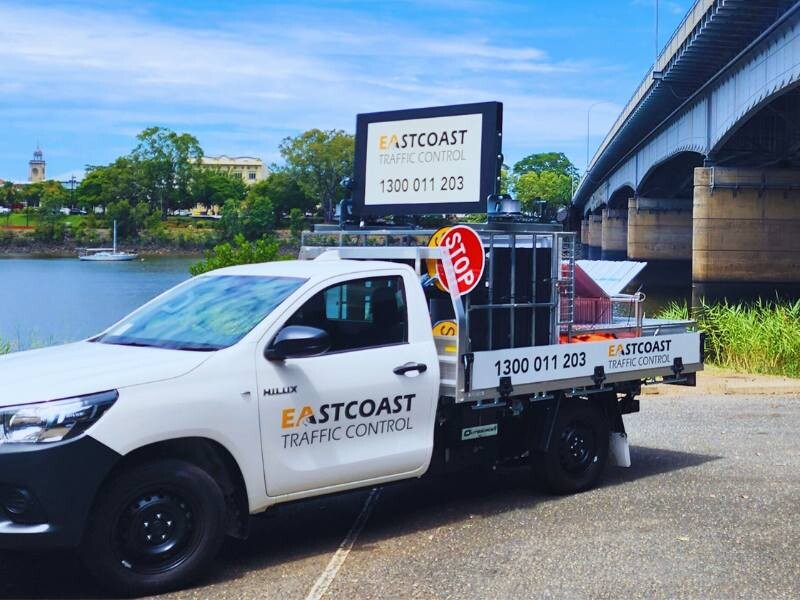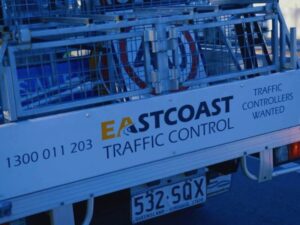So, you’ve passed the training, earned your ticket, and pulled on the hi-vis for the first time—welcome to the traffic control industry! At East Coast Traffic Control (ECTC), we know that stepping onto your first worksite can be both exciting and a little nerve-wracking. That’s why we’ve pulled together this guide to help you understand exactly what to expect during your first week on the job.
Bridging the Gap Between Theory and Practice
Training gives you the knowledge, but real-world traffic control brings it to life. Expect to learn on the go—fast. You’ll be applying everything you learned in the classroom while adjusting to dynamic work environments, different site setups, and varying weather conditions.
Meeting Your Team and Supervisors
On your first day, you’ll likely be teamed up with experienced traffic controllers, Team Leaders, or even Area Coordinators. Don’t be shy—ask questions, listen actively, and soak up their knowledge. At ECTC, we believe in teamwork, and your crew will help guide you through the early days.
Getting Familiar with the Gear
You’ll quickly learn the ins and outs of your equipment—radios, stop/slow bats, signage, PPE, and maybe even vehicles if you’re working as a TMA driver. Make sure your gear is clean, safe, and compliant before you hit the road.
Understanding Site Protocols and Safety Procedures
Safety is everything in our industry. From site inductions to hazard assessments and toolbox talks, your first week will include plenty of briefings and walkthroughs. Pay attention. Learn how to identify risks, follow protocols, and respond if something goes wrong.
Working With the Public and Other Contractors
One of the most underrated parts of traffic control is the public-facing role it plays. Whether you’re explaining a detour to a driver or coordinating with road crews, your communication matters. Being friendly, firm, and clear will make your job easier—and safer.
Dealing With Weather, Fatigue, and Stress
Let’s be real—traffic control isn’t always glamorous. You might be working long hours, on your feet, in the heat or rain. That’s why we emphasise hydration, proper rest, and knowing your limits. Speak up if you’re unsure or unwell—safety starts with looking after yourself.
Learning the Lingo
Every industry has its own shorthand, and traffic control is no different. You’ll start hearing terms like “buffer zone,” “dead lane,” “spotter,” or “AWP” (advance warning point). Don’t worry—by week’s end, you’ll be fluent.
Putting Your Training to the Test
Your formal training taught you how to set up traffic guidance schemes (TGS), position signage correctly, and manage different traffic control methods. Now’s the time to apply that knowledge in the field under real-time supervision.
Expect Feedback and Growth
You’re not expected to know everything right away. Your supervisors and peers will offer feedback to help you improve. Be open to it, and don’t be discouraged by mistakes—they’re part of learning.
Celebrating the Small Wins
Maybe you nailed your first complex setup, got positive feedback from a contractor, or simply made it through your first full week without a hitch. Celebrate those wins. They matter.
The ECTC Difference
At East Coast Traffic Control, we’re proud to support our new recruits with mentoring, ongoing training, and a workplace culture that prioritises safety and respect. We don’t just throw you into the deep end—we guide you through it.
Final Word
Your first week as a traffic controller is just the beginning of a rewarding, challenging, and vital career. You’ll build skills, grow confidence, and play an essential role in keeping our roads safe. At ECTC, we’re with you every step of the way. So, take a deep breath, stay switched on, and enjoy the journey.
FAQs
What qualifications do I need to become a traffic controller?
You’ll need to complete a recognised traffic control training course and obtain the relevant traffic controller licence in your state or territory. In Queensland, this includes completing a course with a registered RTO and passing a practical assessment.
Do I need experience to work with ECTC?
Not necessarily. While experience helps, we’re always open to training the right candidates. Attitude, reliability, and safety focus are just as important.
How many hours can I expect to work in my first week?
It varies depending on site needs and your availability. Some shifts may be full days, while others are shorter. We always follow fatigue management guidelines.
What should I wear on site?
You’ll be provided with high-visibility PPE, but make sure you wear sturdy boots, bring a hat and sunscreen, and dress appropriately for the weather.
How soon will I be working independently?
You’ll always be paired with a team initially. As you gain experience and confidence, you may be assigned to more independent roles. Support is always available.





